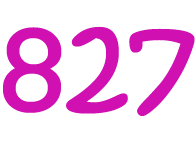Math Definitions - Letter N
Chapters
Nonary
Definition of Nonary

Nonary numbers are made up only of the digits \(\{0,1,2,3,4,5,6,7,8\}\). Each place in a nonary number corresponds to a power of \(9\).
Because there are only \(9\) different possible digits in a nonary number, we also call them Base \(9\) numbers.
For example, the nonary number \(827\) is equal to the decimal number \(8 \times 9^2 + 2 \times 9^1 + 7 \times 9^0 = 8 \times 81 + 2 \times 9 + 7= 673\).
Some other examples of nonary numbers are:
- \(88\), which corresponds to the decimal number \(80\).
- \(100\), which corresponds to the decimal number \(81\).
- \(105\), which corresponds to the decimal number \(86\).
Description
The aim of this dictionary is to provide definitions to common mathematical terms. Students learn a new math skill every week at school, sometimes just before they start a new skill, if they want to look at what a specific term means, this is where this dictionary will become handy and a go-to guide for a student.
Audience
Year 1 to Year 12 students
Learning Objectives
Learn common math terms starting with letter N
Author: Subject Coach
Added on: 6th Feb 2018
You must be logged in as Student to ask a Question.
None just yet!